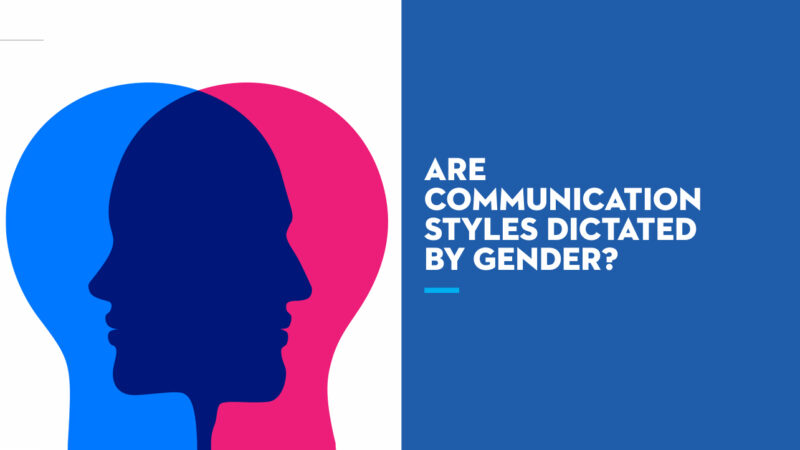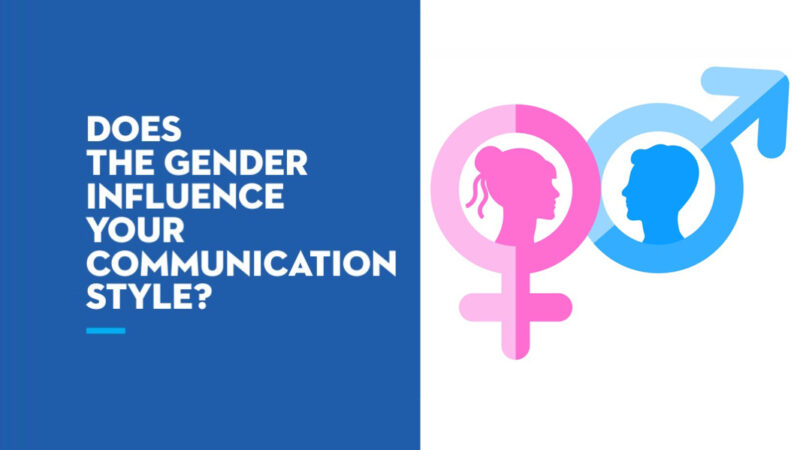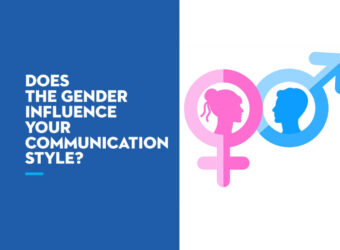Blogs
- Home
- Blogs

Intelligent Strategies for Performance Management in the Hybrid Workplace
A hybrid workplace is one where employees are no longer tethered to their desks. They may work from home, a client’s office, or a coffee shop. While this workplace arrangement offers many benefits, managing performance can also be challenging.
According to a survey, only six in ten workers know what is expected of them, but this number drops to four in ten for those in hybrid or remote work situations.
Here are four innovative strategies for performance management in the hybrid workplace.
1. Defining performance management in the hybrid workplace.
Performance management has been redefined in the modern workplace. The days of the annual review are behind us, and employees are now managed in real-time through various tools and methods. It is no longer a one-time event but an ongoing process that is constantly tweaked and adjusted to ensure that employees meet the company’s goals.
There are many factors to consider when defining performance management in the hybrid workplace. The first is the type of company you work for. Is it a traditional company with a rigid hierarchy and strict rules, or is it a more modern company that is more flexible and fluid? The second factor is the type of employee you are. Are you a high-performing employee who is self-motivated and driven, or are you someone who needs more structure and guidance?
The third factor is the type of work you are doing. Is it creative and innovative, or is it more routine and repetitive? The fourth factor is the company’s culture. Is it a competitive and aggressive culture, or is it more cooperative and collaborative?
Once you have considered these factors, you can define the performance management process that will work best for you and your company.
2. Establishing objectives and expectations.
Setting objectives and expectations is critical to the success of any project. To ensure that all stakeholders are on the same page, it is essential to agree on what is to be achieved and what is expected from each team member. This includes defining what is meant by success and agreeing on any measures that will be used to track progress.
It is also essential to set realistic expectations. The project will likely only succeed if the objectives are ambitious and the timeline is realistic. Stakeholders need to be realistic about what can be accomplished within the given timeframe and what is required to achieve the desired outcome.
By setting clear objectives and expectations, everyone involved will better understand what is required and what is possible.
3. Implementing effective performance management practices.
To ensure that your employees are meeting and exceeding expectations, it is crucial to put in place effective performance management practices. This includes setting clear goals and expectations, providing feedback, and conducting reviews.
Setting goals and expectations is vital to be clear and concise. Employees should understand what is expected of them and what they must do to meet or exceed expectations. Remember, that’s only possible when the goals are realistic and achievable.
Feedback should be given regularly and should be specific. Employees should understand what they did well and what they need to work on. Feedback should also be timely, so employees can make changes if necessary.
Reviews should be conducted regularly and should be used to assess employee progress and set new goals. Considerations should also be used to identify any potential issues or problems.
4. Tracking and reviewing progress.
Progress tracking is an integral part of any project. By tracking your progress, you can ensure that you are on track to meet your goals and can make any necessary adjustments along the way.
There are several different ways to track your progress, depending on the project and the tools you have available. One common practice is to create a project plan, which outlines the steps you need to take to complete the project. This can help you stay on track and ensure that you are making progress towards your goals.
Another way to track progress is to keep a project journal. This can help you document your progress and any challenges or setbacks. This can help track your progress over time and identify any areas that need improvement.
Finally, you can use tracking tools such as spreadsheets or project management software to track your progress. This can provide more detailed information about your project and help you stay on track.
No matter which method you use, tracking your progress is a meaningful way to ensure that your project is on track.

Birds of The Same Feather Flock Together, Especially in The Corporate Jungle
Regardless of where you work, communication is the key to your success. How you communicate can mean the difference between getting ahead and falling behind. In the workplace, there are many things at stake. Whether you are understood, is just one of them. People in powerful positions are likely to reward similar styles because they feel comfortable with people who think and act like them. They see these people as more likely to share their views and be loyal to them. This self-reinforcing behaviour creates an echo chamber in which people with similar styles reinforce each other’s views, pushing people with different types to the margins.
This tendency can have severe consequences in the workplace. For example, research shows that people who are directive when giving orders (that is, those who tell subordinates what to do clearly and concisely) are more likely to be rewarded with promotions than those who are indirect. This is because their style is seen as more in line with the expectations of an influential person. Those who are indirect may be seen as needing more confidence and, therefore, may not be seen as a good fit for a high-level position.
What can one do?
There are many ways to give criticism, give orders, or communicate, but some methods are better than others. Some people believe that the best way to give criticism is to be as blunt and honest as possible. This can often be very effective, as it gets the message across quickly and unambiguously. However, it can also be very harsh and can easily offend the person receiving the criticism.
Another method is to couch the criticism in more favourable terms. This can make it easier to hear, but it can also make it less effective, as the person receiving it may need to understand that there is something wrong with their behaviour.
Ultimately, the best way to give criticism, order, or communicate depends on the situation and the people involved. What works for one person may not work for another. Each method will only work for some people involved.
Different ways of speaking can produce different results in different situations. For example, a company’s culture can influence how speakers are perceived. Additionally, the speaker’s rank can also affect how they are received. The speaker’s linguistic style can also influence how they are perceived. Finally, how these styles interact with one another can also produce different outcomes.
A linguistic style is a powerful tool that can be used to communicate with people in different situations. The ability to be aware of the power of linguistic style and use it to communicate effectively is a critical skill for managers to ensure that valuable voices are heard. For example, If you think unstructured meetings give everyone an equal chance to speak, think again. Different conversational styles can create opportunities for some people to dominate the discussion. At such meetings, those comfortable speaking up in groups, who need little or no silence before raising their hands, or who speak out quickly without waiting to be recognised are more likely to be heard. In a meeting of like-minded individuals, following the same rules will ensure your voice is heard. However, if you meet with people who adhere to different regulations, it may be easier for you to be heard.
Gender socialisation often dictates that boys learn one communication style and girls learn another. This can often be seen in meetings, where men are more likely to be heard than women. Women participating in one-on-one discussions or all-female groups may be less likely to be heard in a meeting with most men. However, some women share the communication style more commonly than men and risk being seen as too aggressive.
Linguistic Strategy and Leadership
A manager who understands the dynamics of linguistic style can develop more adaptive and flexible approaches to running or participating in meetings, mentoring or advancing the careers of others, evaluating performance, and so on. A manager can ensure that everyone’s ideas are heard and credited by being aware of how people communicate. No single solution will fit all contexts, but a manager can create a more inclusive and productive work environment by being mindful of how people communicate.
The ability to read interactions and adjust one’s style to the people they interact with is a crucial skill for any manager in today’s culturally diverse and global business environment. By understanding that different people have different ways of saying what they mean, managers can take advantage of the talents of people with a broad range of linguistic styles.

Ritual opposition – A boon or a bane
Nidhi watched with disbelief as her two colleagues, who had just been quarrelling about budget cuts, became friends again as if nothing had happened. “How can you pretend that fight never happened?” she asked.
“Who’s pretending it never happened?” he replied, equally aghast at the question and the behaviour. “It happened,” he said, “and it’s over.”
She was confused by his response. She couldn’t understand how he could forget about the argument they had just been through.
Men and women differ in their interpretation of communication rituals – men often take them at face value, while women often read into them more deeply. Women are often great at offering up compliments and kind words to soften the blow. However, men usually take this ritual opposition too literally, resulting in miscommunication and confusion. By understanding how men and women communicate, we can better interpret the opposite sex’s actions and avoid any potential misunderstandings.
At work, some people(mostly men) like to discuss ideas in a particular way. They will present their ideas in the most specific and complete form possible and then wait to see if they are challenged. For these people, being forced to defend an idea provides an opportunity to improve it. More often than not, they may play devil’s advocate in challenging others’ ideas, trying to put them down as a way of helping them explore and improve their ideas.
This communication style can be powerful if everyone participates in it, but those not used to it may need help following. If challenged, they may give up on an idea, taking the objections as a sign that the concept is not good. Even worse, they might take the opposition’s criticism personally and find it challenging to work at their best in a hostile setting. People not used to this style may be hesitant to share their ideas, fearing potential attacks. Ironically, this hesitance makes their opponents more likely to attack than to fend them off.
Some consulting firms use confrontational interviewing to challenge the candidate to “crack a case” in real-time. A partner at one firm told me that women tend to do less well in this kind of interaction, and it certainly affects who gets hired. But many women who don’t do well during the test are doing exceptionally well in their careers, turning out to be way more intelligent than some men who look like they have aced the interview.
Confident people are never afraid of opposition because they know that it is a natural part of the process. Insecure people, on the other hand, are often fearful of opposing views because they fear their ideas might not be as good as they thought. If you are uncomfortable with verbal opposition, it is a sign that you are not confident in your ideas.
In organisations, individual managers’ effectiveness depends partly on their skill in negotiating authority. This skill is based not only on their position within the organisation but also on how their linguistic style reflects their status. How we speak can reinforce or undercut our efforts to negotiate authority.
Speakers signal power and status by how direct or indirect they are in their language. Directness can be seen as a way of asserting dominance, while indirectness can be seen as a way of showing respect to the listener.
Despite the widespread belief that it’s best to say exactly what we mean, it is also one of the elements that vary most from culture to culture. Indirectness can cause enormous misunderstanding when speakers have different habits and expectations about how it is used. When it comes to telling others what to do, women are likely to be indirect. Girls learn from a young age that assertiveness and commanding others can lead to social sanctions like being labelled as “bossy.” Consequently, women often resort to using less direct methods to communicate their thoughts and intentions.
Unsurprisingly, men are likelier to be indirect when admitting fault or weakness. After all, boys are ready to push around boys who assume the one-down position. Isn’t it? What do you think?
More on it later

Does Gender dictate Communication Styles?
The workplace can be a tough place. Your colleagues constantly assess you for your communication style. Are you warm and likeable, or are you robust and credible?
For most people, the two sets of qualities sometimes go differently. Some people are seen as powerful but not very warm, while others are seen as friendly but not very powerful.
In the early days of her new job, Mira struggled to figure out how to communicate with her boss. He was seen as powerful but not very warm. She tried to be like him, but it felt forced and unnatural. She eventually realised that she needed to be herself to build a good rapport with people.
How you communicate with others at work can significantly impact your career. In the workplace, people are constantly assessing your communication style for two qualities: warmth and authority. Warmth is vital for creating relationships and establishing trust. Authority is essential for gaining respect and getting things done.
Some people are more sensitive to the social dynamics of language than others. This means they are more aware of the subtle nuances in what other people say to them. For example, they may be more likely to pick up on when someone is trying to be polite or when they are being critical. Men tend to be very aware of the power dynamics in any given situation, speaking in ways that place themselves in a more powerful position and resisting being put in a weaker position by others.
Why do men seem so sensitive to the power dynamics of interaction? To seem confident and in control, they use language that puts them in a one-up position. Is this a trait hardwired into their DNA, or is it something they learn over time?
On the other end of the spectrum, women are the experts regarding the rapport dynamic. They know how to speak in ways that save face for others and buffer statements that could be seen as putting others in a one-down position. Did you know that how you talk at work can determine your success? It’s true! Linguistic patterns are pervasive in the workplace and affect who gets heard and who gets the credit. To be successful, it’s essential to be aware of these patterns and use them to your advantage.
Did you know that pronoun choice can be a powerful tool for influencing the distribution of credit?
I began to understand the difference when I started paying closer attention to how men and women talked about their work. You see, women are socialised to be collaborative and to give credit to others, while men are often taught to be independent and take credit for their accomplishments.
At first, I found it strange to hear men say “I” in situations where I had always heard women say “we.” It was as if the men were claiming ownership of something they didn’t have a right to. I was fascinated by the stark contrast I found when I heard women saying “we” when referring to work they had done alone. One woman explained that it would sound too self-promoting to claim credit in an obvious way by saying, “I did this.” Yet she expected—sometimes vainly—that others would know what she had done.
It was interesting to see the difference in how the men and women spoke, and I couldn’t help but wonder why it was that way. After doing some research, I found that this phenomenon is quite common. Many studies have shown that women are more likely to share credit than men, even when they’re the only ones responsible for the work.
So, what are the possible explanations for this difference? One possibility is that women are socially more collaborative and thus see themselves as part of a team. Whatever the reason, it’s clear that gender roles and expectations influence the way men and women speak.
Do you think women who don’t take credit for their actions should be taught to do so? Many people might leap to that conclusion, but the solution is more complicated than that. Our ways of speaking are associated with moral qualities, so teaching someone how to speak differently can be difficult. Who we are and who we want to be are connected to how we say, so it’s not as simple as telling someone to change their words.
This is especially true for women, who often struggle against gender stereotypes that suggest they are not suited for leadership roles. However, by not putting themselves forward, these individuals are doing themselves a disservice and are missing out on significant opportunities.
More on this in my next piece.

The Communication Styles: Men vs Women
Most often, the only way to judge someone’s confidence is by how they present themselves, a lot of which is through talking. Talking is a huge part of life. It’s how we communicate, share our thoughts and feelings, and learn new information. But only some are confident in their ability to talk.
Boys and girls learn to behave around others early to fit in and be accepted. This often means acting confidently or humbly, depending on the social norms of their group. As adults, women and men often find that positive responses from friends and relatives reinforce these behaviours. Women are usually more specific in their beliefs than men, but they are also more likely to downplay their certainty. Conversely, men are more likely to minimise their doubts, even if they have reservations about something. This tendency may be due to the different ways society expects men and women to behave. Despite being less likely to have learned to blow their own horn, women are more likely than men to believe that they won’t be liked if they do so. This may be because women are socialised to be modest and humble, while men are typically taught to be more assertive and self-promoting. As a result, women may feel uncomfortable bragging about their accomplishments, while men feel more comfortable doing so.
Let’s look at some common scenarios.
Asking Questions
How you ask questions can be just as important as what questions you ask. In groups, if only one person asks questions, they can risk being seen as ignorant. Asking questions at the right time can signal your competence and power. On the other hand, we also judge others by how they are spoken to, not just by how they communicate. If one asks questions, one may be lectured to and look like a student under a teacher’s tutelage.
For example, have you ever wondered why men resist asking for directions? For many, it’s a matter of pride and independence. They value the ability to find their way around without help, even if it means taking a longer route. Additionally, asking for directions can often put a man in an inferior position, which many men are keen to avoid. And men who believe that asking questions might reflect negatively on them may, in turn, be less likely to form a favourable opinion of others who ask questions in situations where they would not.
Rituals in Conversation
Why do women tend to say “I’m sorry” more frequently than men?
Do women apologise more than men because they are inherently more polite and conscientious? Or has society conditioned women to be more self-critical and apologetic than men?
Women apologise more than men, and often they do it on purpose to show concern. This is one of the many things that girls learn to have better conversations and build relationships. How men and women view apologies can be vastly different. An apology can be seen as a blow to men’s ego and status. They may avoid apologising altogether because it can put them in a weaker position.
Giving Feedback
Giving feedback can be a tricky business. There are so many different ways to do it, and each one seems to come with its rituals and expectations. This can often lead to misunderstandings, as people need to understand the intent of the feedback giver.
Let me elaborate on this with an example.
A manager had to tell her marketing director to redo a report as the current version was not up to the mark. After citing the report’s strengths, she moved to the main point: the weaknesses that needed to be remedied. Although the marketing director seemed to understand and accept his supervisor’s comments, his revision only contained minor changes and failed to address the significant weaknesses. After the manager told him of her dissatisfaction, he accused her of misleading him with the statement: “You told me it was fine.” The disagreement resulted from different linguistic styles.
There are a few key things to remember when giving feedback. First, gain clarity on what you’re trying to get done. Second, be aware of the other person’s feelings and be respectful. And finally, be mindful of your own biases and assumptions. If you can keep these things in mind, you’re on your way to giving practical and respectful feedback.
Complimenting
Women see compliments as a way of building relationships. They give more compliments than men, and as this positive attitude is recognised and appreciated, it strengthens these relationships. On the other hand, when a woman asks a man a ritual question, he is more likely to see it as an opportunity to offer her some sage advice. This stems from the things ingrained in childhood where boys often look for opportunities to put others down and take the one-up position for themselves. On the other hand, girls tend to take the one-down place but assume that the other person will recognise the ritual nature of belittling oneself and pull them back up.
Ritual Opposition
Ritual opposition is a familiar ritual among men that is often taken literally by women. They tend to think that all the arguments and fights will last a while. But contrary to that, men think of ritual opposition as an exercise to poke holes and find weaknesses in their ideas as a way of exploring and testing them. People uncomfortable with verbal opposition, whether women or men, risk seeming insecure about their beliefs.
People have different linguistic styles because of their different socialisation experiences. While these are learned in childhood interactions, these styles play out across the lifespan and how!
More on it later.

Did You Know That The Gender Influences Your Communication Style?
I always found it fascinating to see the different dynamics between boys and girls. Although I was raised in a household with one younger brother, I often observed how boys acted and played differently than girls. Of course, there are some similarities between the genders, but for the most part, boys and girls have unique cultures. While boys are typically more physical and enjoy rough-housing, girls are often more emotional and enjoy talking and sharing feelings. It’s interesting to see how these gender-specific behaviours manifest themselves in adulthood.
There’s no denying the fact that men and women are different. But are they really from other planets? How men and women communicate, think, and behave is so contrasting that it must be from another world. But is that the case? Or is it just that we’ve been taught to communicate in a certain way which makes this difference very apparent?
How you say what you mean is crucial to communication. Your tone, inflexion and body language can change the entire meaning of a sentence. What may seem like a simple statement could be interpreted entirely differently by someone, depending on how you say it. Language is a learned social behaviour, so how you speak depends on your culture.
Linguistic style is a fascinating and essential part of communication. How we speak as children can impact how we are perceived and treated as adults. Our accents, vocabulary and grammar can determine how confident we feel and how competent others believe us.
A linguistic style is a powerful tool we use to communicate. It can be used to express our feelings, thoughts, and opinions. But it can also be used to interpret the emotion, ideas, and views of others. It is a way to connect with people and build a relationship.
However, what I find strange is that everywhere the way men and women speak is noticeably different. What is considered “natural” for men in a given language can be different from what is considered “natural” for women. Boys and girls communicate differently because they learn different ways of speaking while growing up. This is mainly because they tend to socialise with others of the same sex.
Girls tend to stick together, forming close bonds with their friends. They spend much time talking, sharing secrets, and developing deep relationships.
A language is a powerful tool for these young girls, as they use it to negotiate how close they are to one another. For example, the girl you share your secrets with becomes your best friend. At a young age, girls are taught to downplay their strengths and emphasise their similarities. They are conditioned to think that to be successful; they must be modest and humble. And when a girl calls attention to her superiority, she will often be ostracised by her peers. These girls will criticise her by saying, “She thinks she’s something”. A girl who tells others what to do is often called “bossy.”
Therefore, girls learn to communicate in a way that benefits them. And others. This allows them to maintain a sense of dignity and respect for each other, even in difficult situations.
On the other hand, boys have always been known to play differently than girls. They generally like to play in larger groups where more boys can be included. However, this does not mean that everyone is treated as an equal. Often, the group has a clear hierarchy, with the most robust and aggressive boys at the top. Boys are often less likely to accuse one another of being bossy, as the leader is typically expected to take command and tell others what to do. How boys use language to negotiate their status in the group is fascinating. By displaying their abilities and knowledge, challenging others, and resisting challenges, they can assert dominance and stand within the group. For boys, there are many ways to get and keep a high-status role. One way is to give orders. Another way is to take centre stage by telling stories or jokes.
Boys and girls learn different conversational styles in childhood playgroups, which often stay with them into adulthood. Why do women and men usually have trouble understanding each other? The answer may lie in the way they habitually say what they mean. Conversations between women and men can be like cross-cultural communication, as the two genders often use language differently.
What they say and what they mean… more on it in my next piece.

Prepare yourself for success with confidence
The boardroom was alive with the sound of voices as the all-male executives discussed the company’s latest proposal. Suddenly, a woman’s voice rang out clear and strong, catching everyone off guard. The men looked at her with surprise, clearly not expecting her to have anything worthwhile to say. But she continued speaking, laying out her well-considered argument with confidence.
The other executives soon began to see that she was knowledgeable and capable, and they started to take her seriously. She ended up winning them over with her arguments, and the proposal was approved. The other executives were amazed at how well she had done, considering that she was a woman. But she just said nonchalantly – I have been speaking like a man for years!
Did you know that the average business meeting is dominated by men’s voices? And while it’s hard to quantify, research indicates that 75% of the talking is done by men. It’s not that women don’t have anything to say, it’s just that their voices are often drowned out by the louder, more aggressive men in the room.
This can be frustrating for women, who have a lot to offer in terms of ideas and insights. It can also be frustrating for men, who may not be getting the most out of their meetings because they’re not hearing from everyone in the room.
One way to combat this problem is to make a conscious effort to give women a voice. This means pausing to let them speak and listening to what they have to say. It also means not letting the loudest voices in the room dominate the discussion.
One way to combat this problem is to make a conscious effort to give women a voice. This means pausing to let them speak and listening to what they have to say. It also means not letting the loudest voices in the room dominate the discussion.
But does this happen?
The answer is a big NO
Despite the progress women have made over the years, they still struggle to find their voice in the room.
“Just trust yourself, look within and all will be good”, were the wise words of the Youth Coach and Educationist, Avinash Singh Alag.
At work, women are not promoted as often as men because their managers underestimate their potential and attribute it to a lack of self-confidence. How can it be possible that all the talented women in the organisation lack self-confidence? So, how can women overcome their fear of asserting themselves and projecting confidence in the workplace?
To overcome this bias, women need to be proactive in communicating their accomplishments and proving that they are capable of taking on challenging assignments. Many women who have worked for large corporations leave their jobs to start their businesses. They have the guts to take the plunge and the determination to make their businesses work. What makes these women so confident there? Is it their years of experience in the corporate world? Or is it something else entirely?
When it comes to confidence, it’s hard to judge a person’s character without knowing them well. However, much can be inferred from the way people present themselves, and the way they talk is a big part of that also known as the linguistic style.
I’ve always been interested in the way that language can affect human relationships. I’ve observed how the way we speak as children can affect how competent and confident we feel, as well as who gets heard and what gets done.
Women are often taught different styles of speaking than men, which can make them seem less competent and self-assured than they are. This is due, in part, to the way our culture socializes boys and girls differently. Boys are encouraged to be assertive and speak their minds, while girls are often taught to be more passive and not stand out. As a result, women can feel uncomfortable using the same speaking style as men, even if it is more appropriate for the situation. By learning to speak in a way that feels authentic to them, women can overcome this confidence gap and feel more confident and self-assured in their communication.
More about this in my next piece on Linguistic Style.

Why is it so important to invest in Web Development ?
The digital world is evolving continuously. The new trend-setters are setting up eye-catching paths, or trends, as they are known.
The idea that social networking platforms have eliminated the need for a traditional website is a common misconception nowadays, but that is just incorrect. Web development is a critical component of every marketing strategy. Successful companies understand the value and importance of a website. Online presence is only one aspect of owning a website. It also involves marketing and showcasing the best that your company has to offer. It helps you stand out from your competitors and draws the attention of your potential customers towards the unique qualities of your business.
What is Web development?
The process of developing and managing websites and web applications through a browser is referred to as “web development.” If required by the business, it also involves database management, web design, and web development. The web development industry is multiplying as the number of internet users is steadily rising.
Importance of Website Development
Successful companies understand the value of website development. In today’s era, a potential customer will surely visit a website as their first stop; a business cannot achieve its goals without a good website.
Brand Awareness
Name, brand, logo, and existence are of utmost importance for an organization. A website keeps the target audience informed of the latest developments by publishing links to your website on forums and blogs, collecting valuable customer feedback using comments, and responding to those comments. A website helps to expand the consumer base and brand recognition..
Assured Credibility
Of course, like anything else, the development of a quality website requires a significant financial commitment. This will create a sense of security among the buyers that the business won’t close or disappear tomorrow.
24/7 service and handling of queries
Because of the ticket system, orders can be accepted, delivered, and invoiced even when the office is closed. Your website serves as a virtual salesperson for potential customers. Adding features like a live chat feature, a comment option, and the availability of contact information will certainly help to win over loyal customers.
Reduced advertising expenses
The only investment is in the SEO of your website which can bring lasting results for your business.
Relevant Content
One can effectively manage the experience of the users while ensuring the relevance of the information. This will help with your conversion process with quality web development. Quality content that effectively communicates with your target audience will make your website stand out from the competition. It is very simple to keep updating your website from time to time whenever the business changes its product line, pricing strategy, or organisational structure. Working with a reputable web design and development agency is the best way to ensure that proper web design procedures are planned and implemented, keeping in mind any future client needs.

What you pay attention to, becomes the experience of your life.
What you pay attention to, becomes the experience of your life, and your experiences define the life you live. In other words, you must be aware of your attention to be able to live a beautiful life. In today’s world, so many experiences are blended, such as working from home or a train or a plane or a beach, and we can also watch our kids on a camera from work. Have you ever experienced the same?
Attention (awareness) in the now.
To manage stress better and to be productive, it is necessary to strengthen our attention management skills.
It is the practice of being present in the moment, flowing with life as it comes, and focusing fully to realise that you are a genius. Be intentional rather than reactive. It is the ability to remember that your attention is being diverted and to bring your focus to the activities you should choose. Rather than being distracted, you should be able to choose where to focus your attention at any given moment, based on your priorities and goals.
Being aware or focused leads to improved productivity. The ultimate result is being able to create a life of your choice. Exercising focus and being in the present moment is about being in control of your time and priorities
Aspirations
The most important thing leaders can do is to support their team members’ continuous growth through the power of mentoring and coaching.
Even if you are a passionate coach or a mentor but are not focused, you won’t have the impact and won’t reflect the values as desired. You always experience what you focus on. And your experiences become the reality of life. So if your attention continues to divert, your life will be full of the “experiences” you never intended to have.
So why don’t we get to experience what we want and create our chosen lives? Why is there such pain and confusion between the self we aspire to and the way we live our lives?
We live in a world with so many distractions, such as the internet, computers, internet-connected phones, and so many other devices that are always with us. These devices deliver a high volume of information and communication we couldn’t have imagined. There’s a lot more in life to divert our attention.
Let’s go back to our mentoring and coaching examples. As you start your day, focus on developing your team and make this your prime task every day. Why are we stressing about this so much? Because much too often even the best of intentions can be pushed to the side in the never-ending rush of crisis-of-the-day, emergency tasks, last-minute favours and other craziness that marks our workdays.
It is difficult to make things happen – even if they are very important and mean a lot to you. You have to work to make things happen. You can’t leave it to chance. The work environment is more often than not so busy that one is presented with task and task. One is forced to choose between what needs our attention now, what needs to be attended to later in the later or even the next day and most importantly, what is not worthy of our attention. All this adds up to make our experiences of the workday.
Choosing What You Attend With Care
This is where attention management offers a solution. It’s a wilful strategy that puts you back in control. Practising attention management means fighting back against distractions and creating opportunities throughout your day to support your priorities.
Firstly, be aware of external factors:
-Take command of your technology. Remember, technology is there to help you do your tasks better. It is there to it’s there to assist you and certainly not the other way around! Focus your attention by consciously choosing to shift away from email and “push” notifications – which are huge attention seekers and thus attention diverters. This will let you focus your attention on your tasks and activities for long stretches of time. Keep your phone silent and out of sight as much as possible.
-Be attentive to your surroundings. Set boundaries with others, especially in an open-office setting. If you cannot put up a do not disturb sign, then put on noise-cancelling headphones – most people take that as a hint that you are not to be disturbed and thus can focus your attention on the task at hand. If possible, go to another part of the office or another floor to get away – sit on the stairs if need be – anything that helps you focus and give your full attention. If things are really bad, you can try teaming up with colleagues to designate a certain time of day, or day of the week, as a “no distractions” day for everyone to do heads-down work.
But here’s an overlooked truth: Our productivity drops not just because of external interruptions but also because our attention span has reduced. Our brain has become accustomed to being distracted by pings and rings that define our frantic workplaces where there is a burning fire that has to be tackled now! For example – you don’t really have to check your email every few minutes. You do not have to answer every single email just because you saw it when you were emailing someone. Do not fall into the rabbit hole of checking and answering emails because you were looking for a document on your email account. Oh, it is so easy to get distracted! Focus your attention back on what you were doing. No distractions or diversions…period. Certainly do not get down to surfing the internet just because you find it difficult to say “I don’t know,” and it is hard to avoid the distracting temptation to “find out now.”
So you must also learn to regulate internal factors.
-Be aware of your behaviour. In this age of multi-tasking, master single-tasking. Focus your attention on only the task at hand. Set time boundaries on completing a task, thus giving it your full attention or until a designated stopping point. Take breaks throughout the day when you step away from your computer. Try to be gadget-free for some time in the workday – you can start with 15 minutes and then take it up another 15 minutes and stretch it up to as much as you want or can do so.
-Be aware of your thoughts. This is the toughest thing to do and it is for this reason that I am addressing this last. Minds are made to wander. Practice noticing when your mind is veering off in its direction and gently guiding your focus back to where you want it. You can apply this strategy even by searching online for information. It is so easy for our minds, our thoughts, and our brains to get lost or distracted that it takes training to control it. One has to become a monk when it comes to completing tasks. Protect your attention like it is the crown jewel.
Practising attention management will not eliminate distractions but the moment you are able to recognise when you are distracted, your “attention muscle” is built through habits like those above, you’ll start to reclaim your life and devote more of yourself to yourself. Don’t allow distractions to throw you off-course from your life purpose. Instead, be aware of your focus on living a happy, satisfied, and joyful life.

The Ongoing Journey of Transformation
The gradual shift from self-doubt to self-confidence.
After 13 years of phenomenal success in the business of advertising, things suddenly took a sharp turn for the worse. In a period of months, I suffered crippling losses. The inability to deal with my unfortunate circumstances affected my self-confidence and belief in my professional skills. I remained in this unhealthy state of mind for 8 years.
Paritosh Pathak’s workshop, New Rules of Professional Networking, was a turning point in my life. It was a ray of hope and an eye-opener that was a catalyst for my transformation. The words, “without expecting anything in return, be genuine, give, and add value in everyone’s life” will stay forever imprinted in my heart and mind. So impressed was I, that I decided to join the one-year program- Master Network Program (MNP) to continue my metamorphosis.
During one of the initial sessions, Paritosh suggested meeting one-on-one with the MNP graduates and fellow batch mates without any particular agenda, but with a genuine interest in them. With this in mind, I began the journey of MNP 100. Slowly, my fearfulness ebbed and I regained my previous confidence and once again became a leader at the workplace. My confidence grew from strength to strength as I learnt to trust and surrender. I was truly inspired to move from ‘I am transforming’, to the destination – ‘I am transformed’.
I realized that my disappointment and dissatisfaction came from the belief that I am a failure. Much of my energy was consumed by all the negativity that surrounded me. Because of the pandemic and the necessity to stay at home, I was able to meet almost 100 MNP graduates and batch mates.
During the one-on-one meetings, I was lucky to meet many helpful and motivating individuals. I owe them a huge debt of gratitude for their encouragement and support.
Tushar Aggarwal of Kala Shree advised me to trust myself, take one thing at a time and move on. Tushar believes that change is the only constant, and that’s so true.
Suman Malhotra, an Insurance Expert, told me to just trust the fact that I have done it once and I can do it once again.
Trust, focus, continuous learning, striving for growth, and the zeal to be inspired at all times, are my key takeaways from a wonderful meeting with Monishankar Hazra, Sr. Director, Technology Service Delivery & Program Management.
“Just trust yourself, look within and all will be good”, were the wise words of the Youth Coach and Educationist, Avinash Singh Alag.
Tarun Bhargav who is striving to bring a change in the world of education advised me that perseverance is the key.
Share Investment Strategist, Rahul Chauhan’s energy was infectious and motivated me to be unique in my approach and to move on, whatever it may take.
Swatee Miittal, a personal branding expert, encouraged me to a large extent. She listened to my story with great interest and guided me to simply be myself and move forward with pure intention, authenticity and dedication.
From Gunpreet Kaur, a cancer warrior and a communications expert, I learnt that whatever may be happening and however it may be, I should get up, dress up, get going, and all will be good.
Rahat A. Bhatia of Innovative Die Casting Technologies said that the “journey is always better than the destination.” My biggest learning from him is that trust is the combination of 3Cs – 80% Character, and 20% Competence displayed with Consistency.
I felt an instant connection with Shagufta Patel, a Parenting Coach and an Editor cum Publisher, and we struck an immediate friendship. By sheer coincidence, her husband Sumeet Gupta turned out to be an old friend and we met after almost 15 years. We are now happily collaborating on a project.
I had rewarding experiences from a meeting with Anuj Sharma – Gifting Solutions, Nupur Gupta – a Make-up Artist, Arsh Gaur – a Chartered Accountant, Benhur Rao – an Executive Coach, and Sunil Agarwal of Indian Handicrafts Emporium.
I had the privilege of meeting the passionate film-maker, Najmus Saqib and Financial Planners – Deepak Gaur, Pradip Shah, Dharmishtha Shah, Chakrivardhan Kuppal and Aseem Juneja. I was delighted to meet Digital Marketer Gagan Maheshwari, the youngest entrepreneur of the MNP Network, and also Rachit Jain.
Perseverance is the key, said Anuj Narula, a Highway Design Engineer.
Health Coach and Expert – Heejin Park is a ball of love, and compassion. Heejin is so calm, soft-hearted, joyful and caring. She always says- you always underestimate yourself, dear Karuuna. You just have to realise that is so powerful, that’s it.
I was super delighted to meet packaging, and production inspection expert – Sumant Kumar, whose positive approach towards life and happy-go-lucky behaviour is just phenomenal. He radiates so much love and compassion to everyone at all times. May God bless you always.
Gurnoor Kaur Behl, a Personal Branding Expert guided me on how to make myself visible on social media. She encouraged me to take immediate steps, which was a great help.
Meeting Meenu Gupta, Founder of Invicta Media, was an experience which cannot be put into words. She reminded me of who I am and of all the healing modalities I had learnt with which I could heal myself, and even took responsibility for my growth.
Ashish Ranjay Sahay & Mithlesh Jha, the Logistics Accelerators, advised me add value to everyone’s life and give as much as I can. They further added that perseverance with honesty, right intention, surrender to the coach with dedication, and trust in self are the key. Ashish is a true giver and is always looking for an opportunity to add value to people’s life.
Sandeep Gupta, a Logistics Expert at CJ Darcl Logistics recognized me instantly when I visited his organization even though we had not formally met earlier. His warm welcome and compassion truly touched me.
The meeting with Subhendu Panja, Vice President of CJ Darcl Logistics was exceptional. Loving, compassionate and down to earth, he is an outstanding human being and a genuine giver. I admire his keen eye for detail and his dedication and perseverance towards his work. It was an absolute pleasure working with him.
I was impressed with the passion, knowledge and experience of Shalini Sinha, a Tea Enthusiast and founder of The Infused Kettle. I wish her all the best and thank her for coming all the way to meet me.
“When the world around us has changed, we need to accept the same and bring in CHANGE with complete trust, surrender, and acceptance.” Were the encouraging words of Praveen Jindal – a Management Consultant.
My batch mate Garima Arora who is a brand strategist and copywriter, is a powerhouse of energy. She radiates so much love and compassion. “Do what you have to do and move on”, is what she believes in.
All is always well. Just get up and keep going says my MNP batch mate and dear friend Ghanshyam Sahni. He is an amazing human being- caring, passionate, compassionate, loving and at the same time very reserved.
Meeting three young entrepreneurs from a recent start-up actually inspired me to start afresh! These dynamic partners – Jogi Prajapati – a Wildlife Photography Expert, Kedar Kalamkar – a Corporate Employee Engagement Expert and Saurabh Thakekar, a Wildlife Travel Expert were a pleasure to meet. Their enthusiasm and energy increased my conviction to start again.
Business Profit Maximiser Atul Vijj said, just BE who you are, trust yourself, surrender to the divine universe, and the world will be yours.
Executive Coach Anurag Sharma, who helps business leaders and organizations enhance Performance & Results, helped me to remember and identify the lessons from my toughest experiences, something I would have never achieved without his assistance.
Architect Rajat Kumar’s passion towards creativity is phenomenal. Meeting the loving Mohit Aggarwal of Asian Adventures was a truly rewarding experience.
It was a pleasure getting acquainted with Mohit Bhutani, a fitness enthusiast into engineering products, Restraunteer Subba Rao, versatile Astrologer Anil Gupta and Anish Roy, a Law Professional.
I was happy to meet Asootosh Kkant, an expert at Manifestation and Networking, Nikhil Jain – a Packaging Expert of bottle closures from Mumbai, Shravanti Upadrasta, PR Professional – Nishant, Digital Marketer – Nishith Srivastava, Spices and Dry Foods Marketer – Nitin Goel, Happiness Coach – PK Khurana, Poonam Verma – a versatile Content Writer, Dr Himanshu Tiwari and Parul Gupta of Out of Home Media.
These one-on-one meetings held without any particular agenda opened new horizons for me. I started learning how to create value for everyone around me. My attitude started to shift from negativity towards positivity. A new ray of hope appeared before my eyes, its brightness engulfing my very being. The fear of rejection started to slip away and the feeling that I was a failure began to disappear. All of this resulted in a big shift of energy within me. Each meeting helped me to let go of my limiting beliefs, each individual helped me believe in myself and galvanized me to act. The fearful inner vibration changed to a new, positive, vibrant and happy ME.
During this process, I was not even aware of when my business began to grow. Looking back, I realize that I have increased revenue by almost 200% in the last 11 months. Now, my goal is to be ME – a compassionate, humble and happy human being with the ability to connect with myself and everyone around me.
AFTER MEETING SO MANY PEOPLE, THE WAY I LOOK AT THE WORLD IS SHIFTING, AND I AM TRANSFORMING. I LOOK FORWARD TO DISCOVERING NEW ASPECTS OF MYSELF, AND THE JOURNEY CONTINUES…
I take this opportunity to thank my dear friend, mentor, and coach Paritosh Pathak for his selfless and continued coaching and guidance. He and the MNP Program have helped me beyond all expectations. Like all MNP graduates, I look forward to creating extraordinary growth, success, and prosperity by using the MNP Principles.
Thanks a million, dearest Swatee Miittal for encouraging me to pen down my MNP Journey of one-on-one meetings.
Note: If I have missed mentioning any names but it is purely unintentional.










